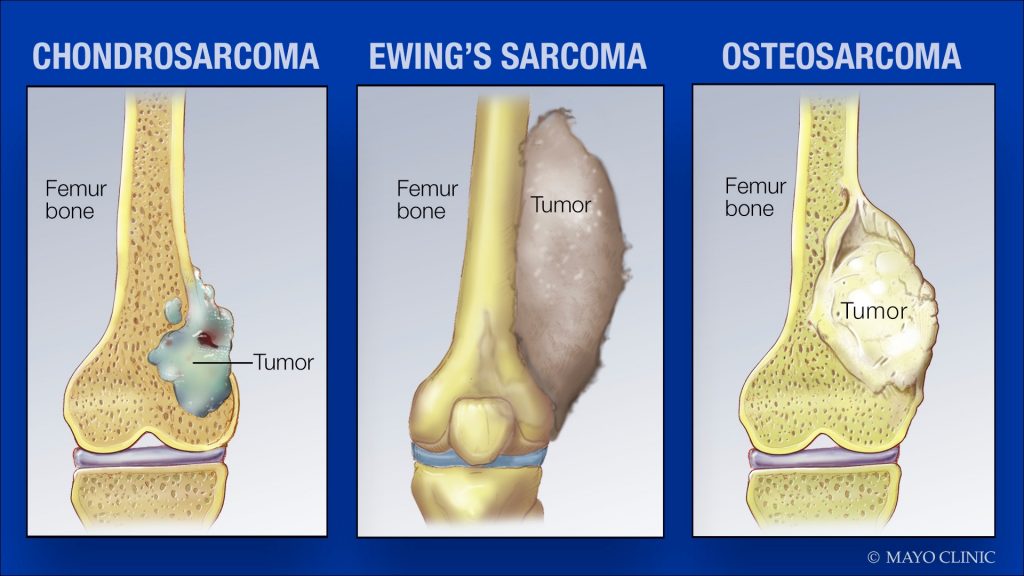-
Mayo Clinic Q&A podcast: Be aware of the rare cancer called sarcoma

A sarcoma is a rare form of cancer that begins in the bones and in the softer connective tissues in the body. Sarcomas that begin in the bones are called "bone cancer," and sarcomas that form in the tissues, including muscle, fat, blood vessels, nerves, tendons, and the lining of joints, are called "soft tissue sarcoma."
"These are rare cancers, and in adults, sarcomas comprise less than 1% of new cancers diagnosed every year," says Dr. Brittany Siontis, a Mayo Clinic medical oncologist. "So most people never hear about sarcoma. And that's why we're grateful to have Sarcoma Awareness Month, to try and bring more education to the population about this rare tumor."
Because this form of cancer is rare, it is important to seek care at a center that sees a high volume of sarcoma patients.
"When we're dealing with something that is so rare, it's really important to have a team of folks who are comfortable with these cancers, familiar with how these cancers behave and know the data to help make the best treatment plan for each patient," says Dr. Siontis.
July is Sarcoma Awareness Month. On the Mayo Clinic Q&A podcast, Dr. Siontis discusses the various forms of sarcoma, treatment options, and research that's underway on new therapies and ways to treat sarcoma.
Watch: Dr. Siontis discuss sarcoma treatment and the latest research.
Read the full transcript.
____________________________________________
For the safety of its patients, staff and visitors, Mayo Clinic has strict masking policies in place. Anyone shown without a mask was either recorded prior to COVID-19 or recorded in a nonpatient care area where social distancing and other safety protocols were followed.







